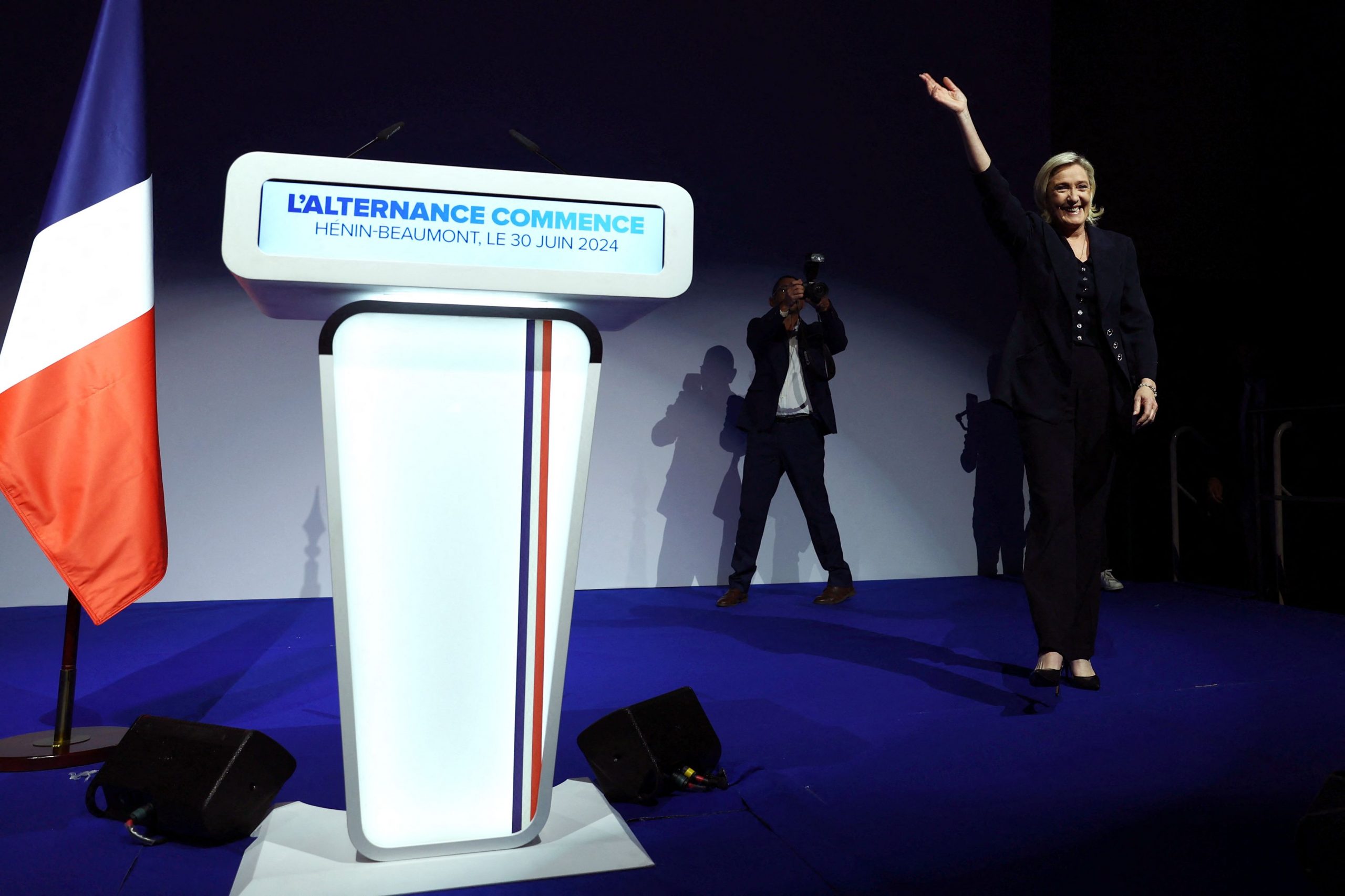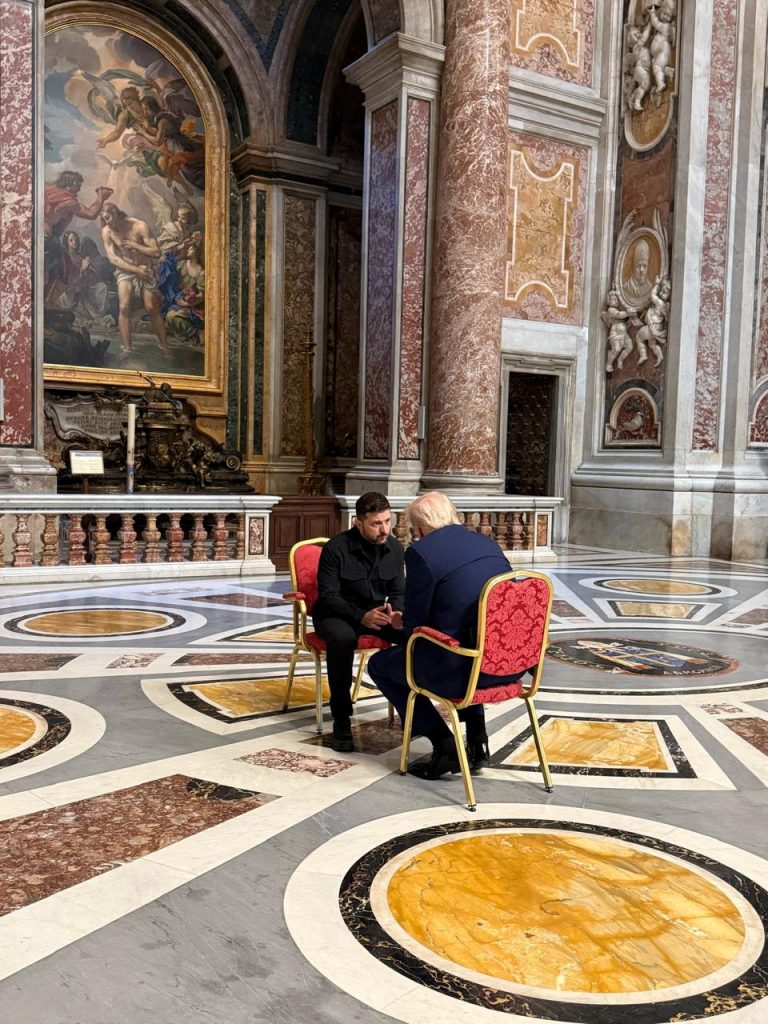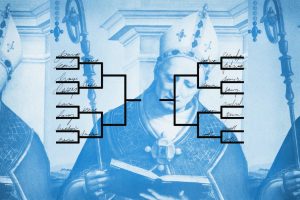PARIS— Marine Le Pen ’s National Rally notched a victory in the first round of parliamentary elections across France on Sunday, according to projections that showed her far-right party moving one step closer to its goal of winning control of the National Assembly and taking the reins of government.
A projection by polling firm Elabe said National Rally and its allies won 33% of first-round votes while the New Popular Front, a coalition of leftist parties, garnered 29% of ballots. President Emmanuel Macron ’s pro-business party and its allies were heading for a third-place finish with 22% of the vote, Elabe said.
National Rally is on track to score an unprecedented haul of parliamentary seats when voters return to the ballot box for the July 7 runoff, marking a watershed moment in the history of France’s modern Fifth Republic. If National Rally wins a majority in the National Assembly, Macron would face the possibility of sharing power with the first far-right government since Vichy France. Macron’s presidential term ends in 2027, and he said he won’t resign.
Macron placed a massive bet when he called the snap elections , expecting to edge out leftist parties in the first round and force their voters to rally around his party for the runoff as they had in previous national elections. The election, Macron said, would provide France with a moment of “clarification” after her forces trounced his in European elections at the start of June.
Now Macron’s calculation appears to have backfired, ushering Le Pen and her allies within striking distance of a 289-seat majority in the National Assembly. That would compel Macron to select a prime minister from Le Pen’s ranks as Paris is just weeks away from hosting the Summer Olympics.
On Sunday, Le Pen reveled in the thought of her protégé, 28-year-old Jordan Bardella , running the next government. Bardella has placed immigration and the rising cost of living at the center of his campaign, hammering the president over inflation and promising to turn the page on seven years of “macronisme.”
“We need an absolute majority so that Jordan Bardella will be appointed prime minister in eight days by Emmanuel Macron,” Le Pen said in a speech before a crowd of supporters waving tricolor flags.
Bardella told reporters on Sunday the runoff vote next week will be “one of the most decisive in the history of the Fifth Republic.”
Based on Sunday’s vote, Elabe estimated that National Rally and its allies would win between 255 and 295 seats. The New Popular Front—which includes socialists, greens and the far-left party France Unbowed—was expected to win between 120 and 140 seats, and Macron’s party and its allies could win 90 to 125 seats, the polling firm said.
Whatever the final tally, Sunday’s vote provided a strong signal that the French parliament is headed for a political realignment. Macron’s party finished with 245 seats in the previous parliamentary election in 2022. Le Pen had 89.
The weak showing of Macron’s party marked a humbling moment for a leader who once compared his office to Jupiter, the ancient king of the gods. The third-place finish means many of his candidates might miss runoff races around the country. Candidates need to win support from 12.5% of registered voters on Sunday to qualify for the final round.
For decades, France’s two-round system of voting has functioned as a bulwark against parties from the far ends of the political spectrum, encouraging voters to blow off steam in the first round and then coalesce around an establishment candidate in the final one.
Candidates finishing third on Sunday came under immediate pressure to drop out of the runoff. That would allow voters who supported the leftist coalition and Macron’s ranks in the first round to unite behind a single candidate in a “republican front” to block National Rally. Elabe estimated that up to 320 districts could have three-way races if no one drops out.
“In the face of National Rally, the time has come for a broad, clearly democratic and republican coalition for the second round,” Macron said in a statement on Sunday evening.
Raphaël Glucksmann , a prominent socialist, called on parties that finished third to drop out of the race and form a blockade against National Rally, adding: “We have seven days for France to avoid a catastrophe.”
The push for unity, however, is complicated by the presence of France Unbowed within the leftist coalition. The founder of the biggest party within the alliance— Jean-Luc Mélenchon of the far-left France Unbowed—has faced accusations of antisemitism, which he has denied, over his incandescent criticism of Israel and the Gaza war, making him radioactive to many of Macron’s voters.
“Mélenchon and his friends represent an existential threat for our country,” Bardella said.
Eric, a 27-year-old from the 14th district of Paris, said he couldn’t vote for the leftist alliance because he sees France Unbowed catering to Muslim voters. “It’s not the left of before. They have lost their values.” The Wall Street Journal agreed to use only his first name.
On Sunday, Mélenchon called on France Unbowed candidates who finished third in districts where National Rally is leading to drop out of the runoff. Protesters poured into Place de la République to protest against the far right.
Sunday’s vote is a measure of how National Rally’s strident anti-immigrant stance has moved into France’s political mainstream.
The party campaigned on restricting the rights of foreign residents living legally in France and tightening access to citizenship, welfare and housing. The party aims to rewrite parts of the French constitution, abolishing the right to citizenship for the children of foreigners who are born in France. It also wants to bar women from wearing Muslim headscarves in any public space—including the sidewalks of Paris—though Bardella has recently said the stance won’t be a priority.
Marion Trolet, a 46-year-old accountant in Burgundy, said she cast her vote for the National Rally because she believes Bardella is the only politician who is ready to tackle crime and immigration head on.
“He doesn’t let people intimidate him,” Trolet said. “He has incredible charisma; he is amazing,” she added.
Le Pen has spent years attempting to distance her party from its controversial founders, including her father and Pierre Bousquet, who was a member of the French division of the Waffen-SS during World War II. Then called the National Front, the party was ostracized by mainstream French politics as the country grappled with its role in deporting tens of thousands of French Jews to Nazi death camps during World War II.
The party’s isolation deepened when Jean-Marie Le Pen described the Nazi gas chambers as a mere “detail” of history in the 1980s. He repeated the stance in 2015, prompting his daughter to throw him out of the party.
Le Pen changed the party’s name to National Rally after losing the presidential election to Macron in 2017. She kept the tricolor flame, a fascist symbol, as the party’s logo.
Today, National Rally is animated by widespread anxiety that France’s Muslim minority, one of the largest in Europe, is encroaching on the secular values of the French republic.
On Sunday, Le Pen sought to assuage widespread concerns that the arrival of National Rally in the halls of government would herald an era of illiberalism. “No French person will lose any rights. Au contraire, the rights will be guaranteed,” she said.
Write to Noemie Bisserbe at noemie.bisserbe@wsj.com and Stacy Meichtry at Stacy.Meichtry@wsj.com



